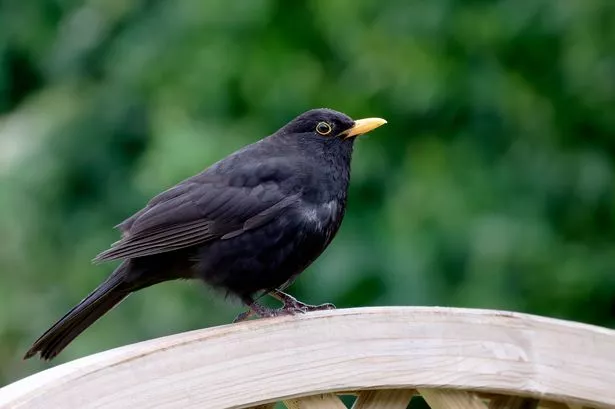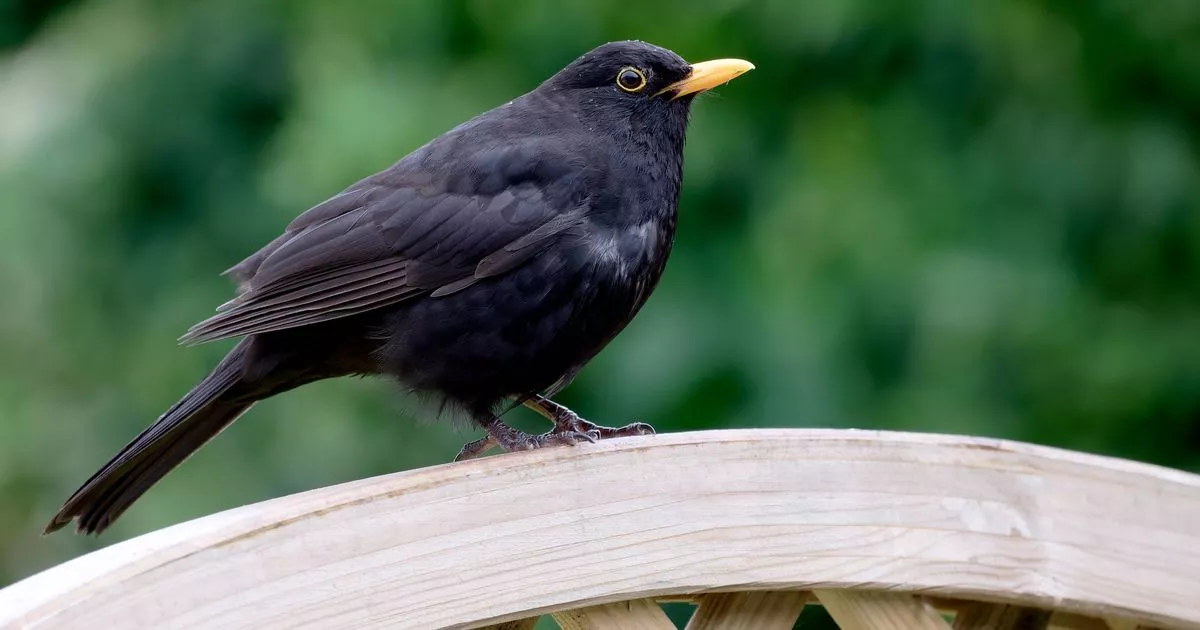The Usutu virus has been spreading through Blackbirds in southern England and a key survey needs people to sign up People with blackbirds in their garden are being urged to help out a special survey as the species is being hit with a disease(Image: Getty Images)
People with blackbirds in their garden are being urged to help out a special survey as the species is being hit with a disease(Image: Getty Images)
The deadly Usutu virus – a mosquito-borne disease that has been ravaging Blackbird populations across southern England, is sparking serious alarm amongst wildlife experts.
Initially detected on British soil in 2020, the virus has now advanced as far west as Dorset and penetrated northwards into Cambrideshire. Having originated in Southern Africa, Usutu arrived in Europe three decades ago, where it has triggered multiple catastrophic Blackbird die-offs, Bird Guides reported.
The British Trust for Ornithology is now appealing to all garden owners with blackbirds to participate in a specialised survey to assess the scale of the destruction and provide assistance where required – but there are only days left to participate as it ends in early September.
Whilst the risk to human health remains minimal – with no documented cases in Britain – the consequences for bird populations are severe. Statistics reveal that across Greater London, Blackbird numbers have crashed by as much as 40% since Usutu’s arrival following the 2020 heatwave.
Dr Arran Folly from the Animal and Plant Health Agency (APHA) sounded warnings about the virus’s swift expansion and persistent establishment, indicating it could herald the arrival of additional mosquito-transmitted diseases in the UK. “It gives an indication that in the future we might get other viruses that are transmitted by mosquitoes emerging in the UK,” he cautioned, reports Devon Live.
Climate change is being blamed for the expansion of mosquito populations, with rising temperatures, longer summers, and more severe rainfall creating environments where both the insects and their pathogens can thrive where they previously couldn’t.
In partnership with the British Trust for Ornithology (BTO), researchers from the Animal and Plant Health Agency (APHA) are aiming to investigate further into the impact of Usutu on native bird species. At the same time, the BTO is calling on the public to help monitor the situation by reporting any sightings of Blackbirds.
“Blackbirds are currently nesting and are a common sight in gardens and parks. With public help, we can better track population trends and the virus’s impact,” said a spokesperson for the BTO.
While Blackbird populations remain stable in rural and northern areas, the unpredictable nature of the virus means that ongoing surveillance is necessary. The combined efforts of APHA and BTO aim to provide crucial data to inform conservation strategies and prepare for future emerging diseases.
The BTO stated: “We are trying to better understand the extent and spread of Usutu virus and what the potential impacts of the virus might be on Blackbirds. In particular, as Blackbird numbers were already decreasing in London, a large urban area, we want to know if anything similar is happening in other urban areas, or whether these changes are specific to the capital, and how this compares to smaller urban and more rural areas.”
How will Blackbirds in Gardens help?
The BTO is conducting a survey to understand the potential for disease transmission by Blackbirds in gardens, focusing on the number of birds that congregate together. The organisation stated that this will help comprehend how Blackbirds utilise different types of gardens and their success in rearing young, particularly across varying levels of urbanisation from rural to urban gardens.
The BTO commented: “Although largely harmless to humans, this is the first time in modern history that a mosquito-borne viral zoonosis (a disease which can be transmitted from animals to humans) has emerged in wild animal hosts in the UK but, with changing climates, more may occur in the future.
“Using Usutu virus and Blackbirds as a case study, this survey is part of the Vector-Borne RADAR project, a wider partnership project funded by the UKRI and Defra to understand the emergence and transmission of mosquito-borne viruses in the UK more generally which are expected to increase with climate change.
“The project will improve understanding of how these viruses emerge in new environments, enhance surveillance of diseases in wild birds in the UK and develop an early warning system for disease outbreaks.”
How to sign up to the survey
You can sign up for Blackbirds in Gardens online.
